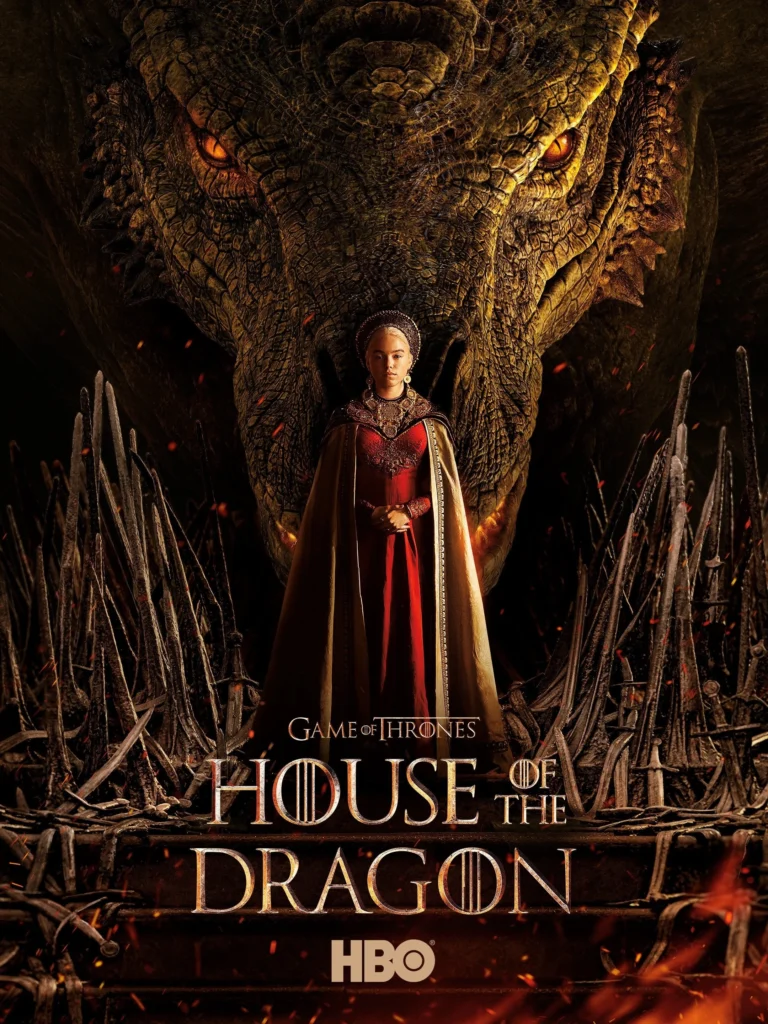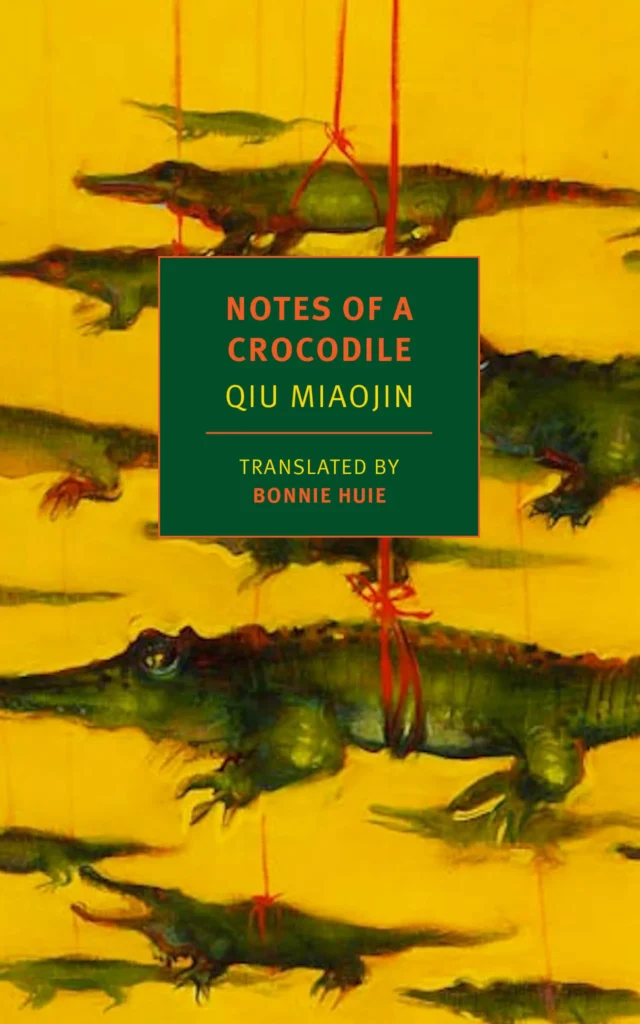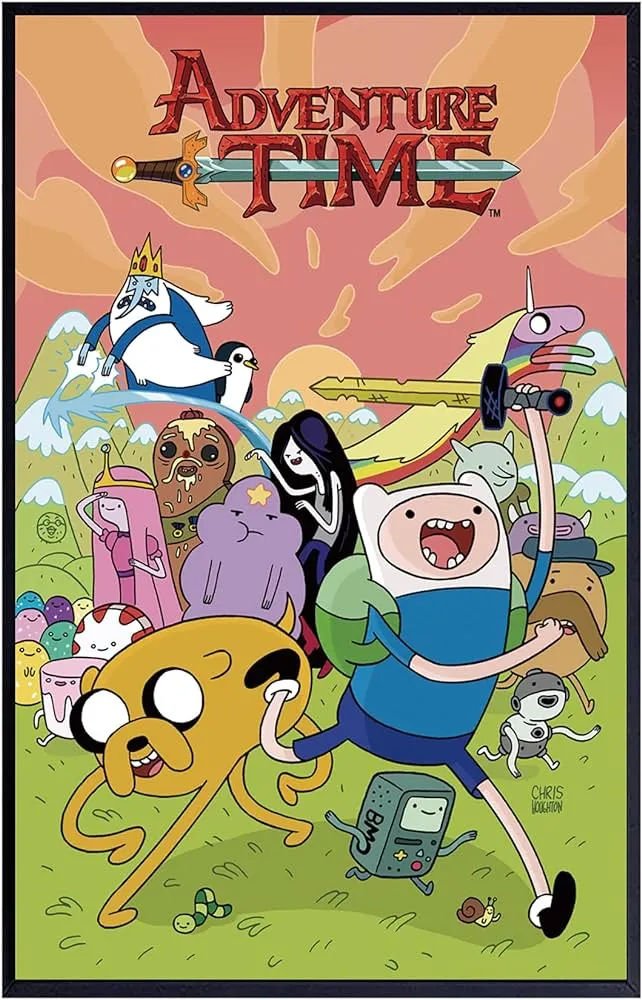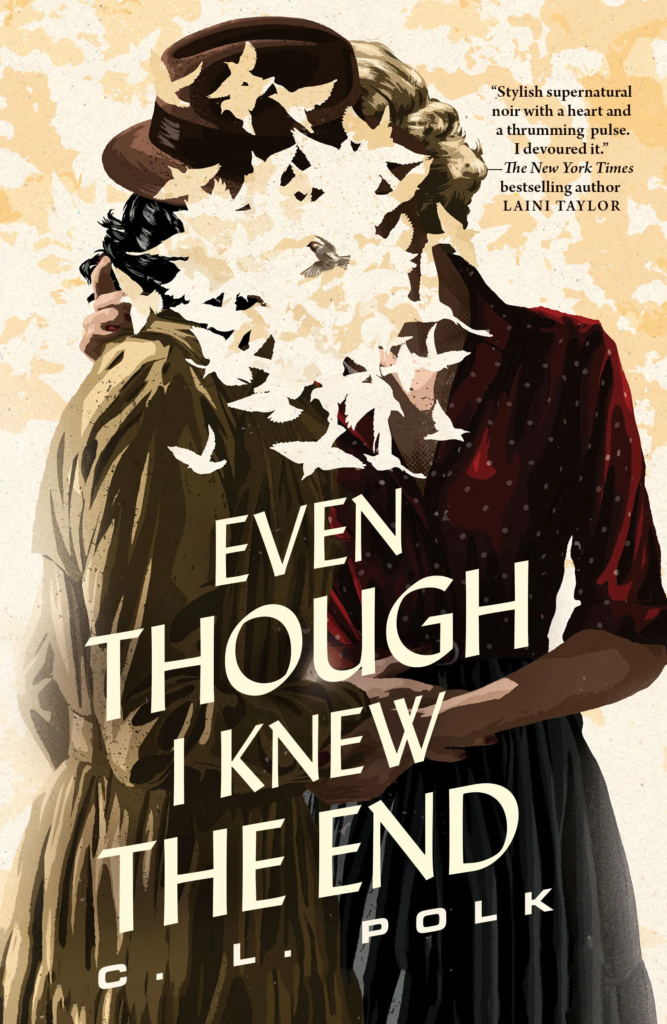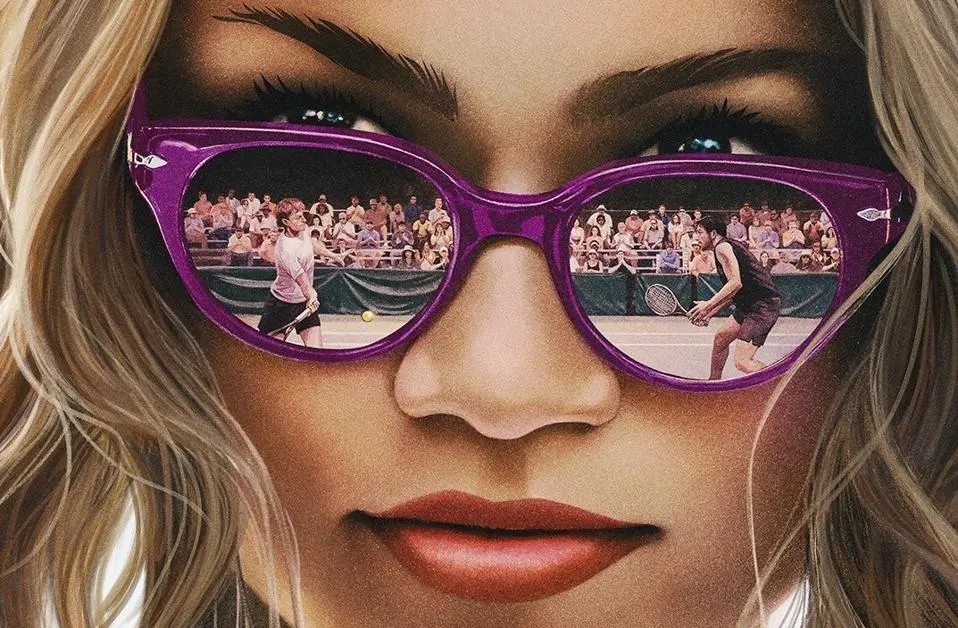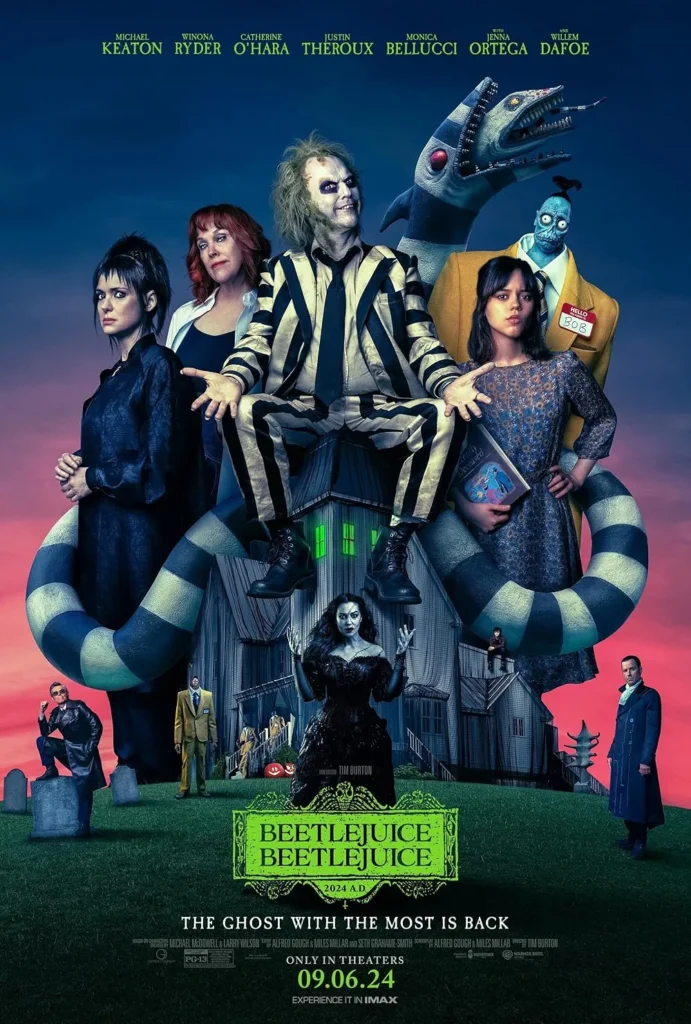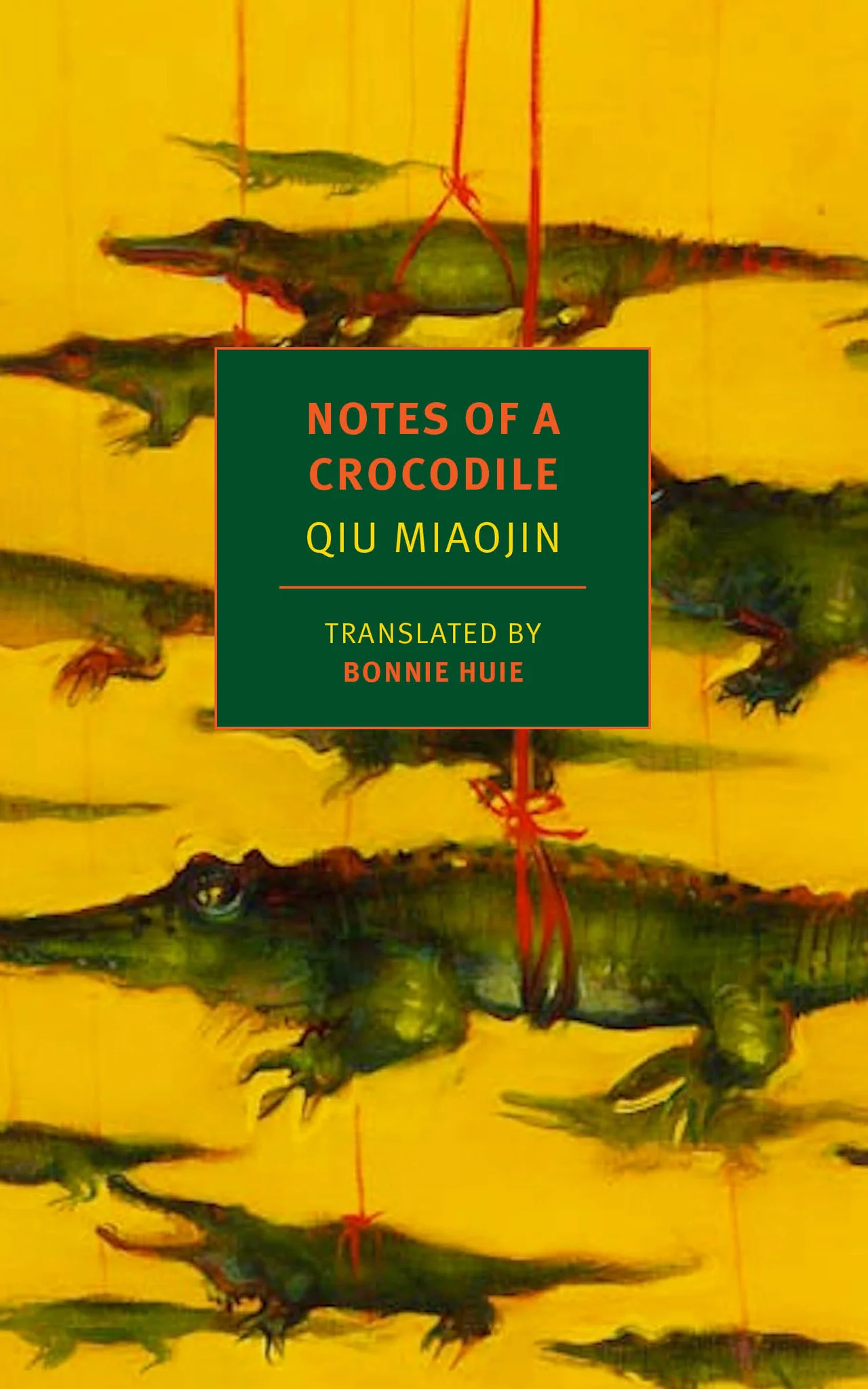
September Staff Picks
Words By F(r)iction Staff
Ainsley Louie-Suntjens
House of the Dragon
I feel like I am the very last person to arrive at the party for this one, but I spent the better part of my summer blitzing through House of the Dragon. I resisted for so long— first, everyone and their mother was begging me to watch it and I refuse to cave to peer pressure, and second, the Negroni Sbagliato meme inundating my twitter feed annoyed me— but I gave in and pretended it was my own idea to save myself the embarrassment.
I am sorry to announce that yes, it was as good as everyone said that it would be. I specifically need to highlight the two leading actors: Olivia Cooke and Emma D’Arcy positively disappear into their roles. The supporting cast is excellent, but the amount of electricity between these two could probably power a small homestead. I didn’t forget about Milly Alcock and Emily Carey either— the first four episodes are probably my favorite of all. The writing (of the first season at least) is fascinating, and it also fixed a lot of the writing problems of Game of Thrones, particularly the misogynistic ones— it makes me happy when writers take feedback. I will admit that the tail end of season two peters out a little bit and I know George R. R. Martin was really up in arms with how it was adapted, but to be honest, it is such compelling television that I don’t even really mind. George, this is for me, not you.
Erxi Lu
Notes of a Crocodile
I discovered the existence of Notes of a Crocodile on Booktok of all places, but this novel transcends the formula that Booktok books tend to follow. Notes of a Crocodile is an almost painfully honest depiction of queer college students in 1980s Taiwan. The characters continually hurt each other, provide reprieve, and in the middle of consoling one another, seem to once again wound everyone around them. In complete honesty, I was unsure of how I felt about the book in the beginning. The main character is difficult to root for and the characters seem to love to dig themselves deeper into holes rather than out of them. And yet, all of a sudden, on page 99, I realized this book was beautiful. As much as I didn’t have the cultural framework to understand all the nuances in this novel, it became clear to me that this novel is also about the difficulty of growing up, the existence within the liminal space in-between childhood and adulthood, and the disorientation that comes from being pushed into a freedom that is not quite free. The novel is perfectly human, perfectly young, and perfectly broken.
Lydia Layton
Adventure Time
It’s a cartoon classic for a reason. No matter the time of year, I always come back to Adventure Time; iconic, colorful characters, sapphic representation, and delightfully absurd storylines to brighten any day. Some of my favorite episodes include Astral Plane, Simon and Marcy, Jake the Brick, and BMO Noire.
Skyler Boudreau
Even Though I Knew the End
I am always on the hunt for strange, fantastical books with great LGBTQ+ representation, and C. L. Polk’s award-winning novella Even Though I Knew the End fits into all those categories. I stumbled across this book accidentally and subsequently devoured it in a single afternoon. In less than 150 pages, Polk ripped my heart out of my chest and then stapled it back in place with one of the most bittersweet endings I have read in a long, long time.
Readers meet Helen, a magical detective operating in 1940s Chicago, three days before she is meant to die and burn in Hell for eternity—it’s the price she must pay for an old bargain with a demon made before the start of the story: her soul, to be collected in ten years’ time, for her brother’s life. While she’s not exactly at peace with her fate, it’s something Helen has accepted. However, in the days leading up to her death, Helen is offered a dangerous final job. Should she complete this job, she will be rewarded with the return of her soul and the chance of a long life with Edith, her loving partner. Helen’s chance of completing the job is slim, but it’s not an opportunity she can pass up.
Between an intriguing new magic system and one of the most well-written sapphic romances I’ve ever read, Even Though I Knew the End grabbed my attention the moment I picked it up and hasn’t let go since.
Parker McCullough
Challengers
Since its April release date, I’ve seen Challengers three times. It. Is. Just. That. Good. How can I describe director Luca Guadagnino’s masterpiece? Firstly, I must warn you that even though there is a racket in almost every scene, this is not a movie about tennis. Challengers is about the queer love triangle between Tashi, Art, and Patrick. As the film unfolds, you see each character’s flaws and what they sacrifice to get what they want. Patrick loves Art, Art loves Tashi, and Tashi loves tennis. The stakes are dramatically high throughout the film, only to passionately climax at the very end.
Something that has always amazed me about queer cinema is that there is effort in the details. There is a scene where the competition scheduler is eating a breakfast bagel from Dunkin’, and you can see the lipstick stain on her coffee cup as she shares half her breakfast with Patrick. Intimacy is placed in every scene that warrants a second and third watch.
The cinematography paired with the techno house-worthy score emerges in moments of action, giving you an electric feel, like when you’re about to step onto the dance floor. I have been playing the mixed version of the soundtrack all summer and will probably keep it in my rotation…forever. If you haven’t already, give the film a go! Challengers affirmed a knowing of my identity as a queer individual, but even if you’re not queer, who doesn’t love tennis?
Dominic Loise
Beetlejuice Beetlejuice
I have been looking forward to the sequel of Tim Burton’s original horror comedy Beetlejuice (1988) ever since I heard Seth Grahame-Smith was connected to the project. Grahame-Smith has a keen eye needed in balancing horror mashups as seen in his books Abraham Lincoln: Vampire Hunter and Pride and Prejudice and Zombies. So, I was interested in him teaming with a visually-distinguished director like Tim Burton, and how the two creators would honor and build upon the original movie.
The major theme of Beetlejuice Beetlejuice can be seen in the original cast members not brought back for the sequel. The main ghosts couple Adam and Barbara Maitland (Alec Baldwin and Geena Davis), who learn to share their home with the living in the first film, are not in the sequel because they’ve moved on. The theme of moving on is a through line in Beetlejuice Beetlejuice as characters deal with the grief of the both past and recently departed in their lives. Lydia Deetz (Winona Ryder), the teenager who could see ghosts and befriended the Maitlands, now has a teenage daughter (Jenna Ortega) of her own. The two have been estranged since Lydia divorced her husband, after which he soon died. The film also deals with the casting conflict of bringing back cancelled actor, Jeffrey Jones (Charles Deetz), by reuniting the remaining Deetz for the patriarch’s funeral.
There wouldn’t be a Beetlejuice sequel without Michael Keaton reprising his role as title character, Betelgeuse. Keaton was so associated with the character that most people forget he was only in the original movie for under twenty minutes. Since then, there has been a Beetlejuice animated series and Broadway musical, which all spawned from Kenton’s original performance as “The Ghost with the Most.” In the sequel, Betelgeuse has not moved on from the first film and his love for Lydia Deetz. He has been haunting her in her nightmares and, as her real life toxic relationship gets more serious, he starts bleeding into the waking world.
Characters being empowered to move on from toxic relationships and draw closer bonds to those who have provided safe spaces of healing is why I’m recommending Beetlejuice Beetlejuice. The living characters learn to exorcize the harmful relationships they’re in with manipulative people. Even the trickster Betelgeuse is on the run in the afterlife from his ex-wife, a soul-sucking ghost.
Beetlejuice Beetlejuice hits all the looks and sounds of the first film while adding depth to its characters. I mention sound because not only is Danny Elfman’s score present like in the original film, but the creators worked in the famous Day-O score. And just when the moviegoer thinks there won’t be another ghost possession/lip-sync scene, Beetlejuice Beetlejuice pulls out all the stops with a song that ties the theme of loss and moving on together.
